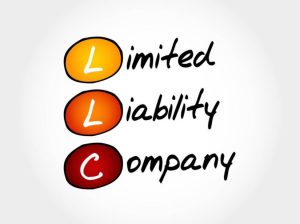When choosing how to form your company, it is important to consider what type of structure is the most appropriate for your business. Some of the essential factors to consider are investment need, potential risks and liabilities of the company, income and taxes, and the formalities and costs associated with setting up and maintaining various business structures. Two of the most popular options for small businesses are sole proprietorship, Limited Liability Company (LLC).
You should look for the best llc formation services if you opt for an LLC. In many cases, businesses tend to start with a one-person structure. However, your business is not bound to one type of legal entity forever and may eventually switch to other more complex systems that protect personal assets.
Sole Proprietorship
It is the simplest structure to start a business. There is no legal difference between the individual and the company. The formation of this type of company is the easiest. However, depending on the state and type of business, you may need a license to operate and another to collect sales tax.
Another great advantage is that you are the sole owner of the company. You have total control over all decisions. You are not required to consult with anyone when making decisions or making changes. Lastly, the business is not taxed separately, so it is easy to comply with the tax reporting requirements. Also, the tax rates are lower than other business structures.
advantage is that you are the sole owner of the company. You have total control over all decisions. You are not required to consult with anyone when making decisions or making changes. Lastly, the business is not taxed separately, so it is easy to comply with the tax reporting requirements. Also, the tax rates are lower than other business structures.
The biggest disadvantage of this type of entity is that the owner responds with his personal assets for possible business losses. Another disadvantage is that it can be more complex to access capital for your business. Since you can’t sell shares of the company, investors won’t invest often. Banks will also hesitate when it comes to sole proprietorship loans due to a perceived lack of credibility in repaying money if the business fails.
Another fact to keep in mind is that if the business is going to have a different name than the owner, a special certificate needs to be obtained from the city or state where the business is to be opened.
Limited Liability Company (LLC)
One of the advantages of this type of entity is that it protects the partners’ personal assets against the debts of the company or other obligations related to the business. You are allowed to pay taxes as a corporation or as an association. In LLCs, there are fewer registration documents and lower costs to start the business. Finally, there are fewer restrictions on profit sharing in limited liability companies since the partners distribute the profits as they see fit. Some of the disadvantages are that the creation process is more expensive than if a company is chosen.
of this type of entity is that it protects the partners’ personal assets against the debts of the company or other obligations related to the business. You are allowed to pay taxes as a corporation or as an association. In LLCs, there are fewer registration documents and lower costs to start the business. Finally, there are fewer restrictions on profit sharing in limited liability companies since the partners distribute the profits as they see fit. Some of the disadvantages are that the creation process is more expensive than if a company is chosen.
You need to present the training documentation, including the statutes of the company. Keep in mind that depending on the state, each limited liability company must pay annual fees, which vary from state to state. Another major disadvantage is that in some states, when a member leaves the society, the company must be dissolved, and the members must comply with legal and business obligations. The other members can choose to start a new organization or separate.

